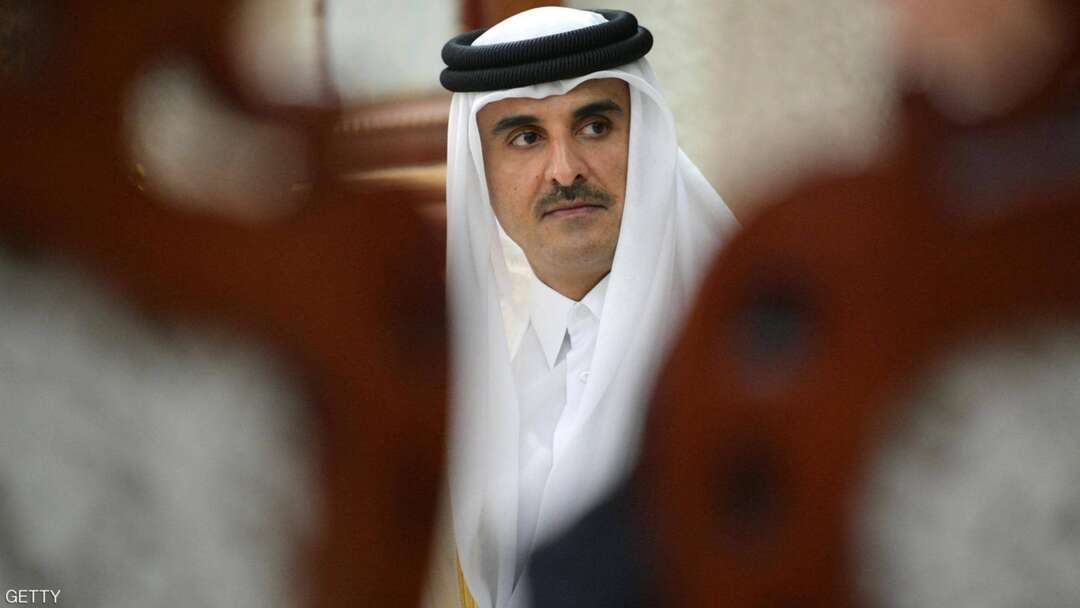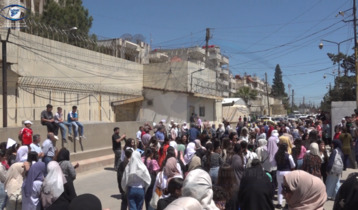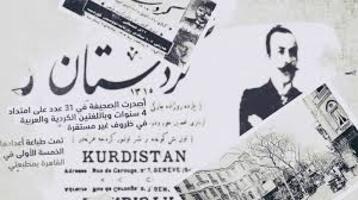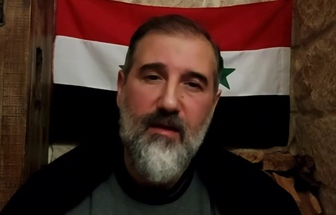-
How Qatari banks are accused of funding Muslim Brotherhood, global terrorism

Qatar’s use of banks to fund terrorism across the world is in the spotlight after this week’s revelation that UK-based Qatari-owned Al Rayan Bank provides banking services to the Muslim Brotherhood and terrorist groups in Britain, the latest case of alleged Qatari support for terrorism.
On Sunday, British daily The Times reported that Qatari-owned Al Rayan Bank has provided banking services to organizations linked to terrorism in Britain.
The report said that Al Rayan Bank has several clients who have had their accounts in other banks closed or frozen due to a security clampdown. At least four of its clients have had their other accounts closed in banks including HSBC, Barclays, NatWest, and Lloyds TSB.
But the Al Rayan case is only the latest in a string of accusations.
Earlier in April, a new book titled the “Qatar Papers - How the emirate finances Islam in France and Europe” revealed that Doha funded dozens of mosques and Islamic center projects in Europe, the majority through a network tied to the Muslim Brotherhood.
The book, authored by French journalists Christian Chesnot and Georges Malbrunot, contained proof of transfers of several million dollars from Qatar to fund more than 140 projects in Europe, with 50 in Italy alone. It says that the network stretches across countries including Italy, France, Switzerland, and Germany.
Switzerland
Among Qatar’s network members in Switzerland included Mohamed and Nadia Karmous, who received millions of euros between 2011 and 2013 through seven bank transfers from Qatar Charity. It reveals that Nadia Karmous was directly recommended by Yusuf al-Qaradawi, the Qatar-based spiritual leader of the Muslim Brotherhood.
In 2007, Mohamed Karamous, who served as treasurer of the European Institute for Human Sciences – a university in central France affiliated with the Muslim Brotherhood in Europe and funded by Qatar – was arrested by Swiss authorities in a high-speed train while in possession of €50,000 ($56,000) in cash from Qatar.
The Qatar Papers also documented how Qatar paid rape-accused Swiss Islamic scholar Tariq Ramadan. The Qatar Foundation paid Ramadan €35,000 a month as a consultant. Bank documents obtained by the book's authors showed that Ramadan withdrew €590,000 from Qatari bank accounts just before his arrest in France.
France
Qatar also faces several accusations of financing terror and suspicious financial activity in France.
As a result of the Qatar Papers, French Member of the European Parliament Gilbert Collard said in April that he had requested for the creation of a commission of inquiry into the financing of Islamist and Salafist propaganda by a foreign state via the Qatar Charity organization in France.
In total, the authors of the Qatar Papers documented payments of up to €72 million to groups in seven European countries.
Another example of Qatar’s abuse of banking laws to fund sanctioned individuals came to light after several media outlets raised questions regarding properties acquired by Qatar’s Attorney General and Chairman of Rule of Law and Anti-Corruption Center (ROLACC), Ali bin Futtais al-Marri.
In May 2018, French magazine Le Point said that al-Marri has a list of expensive properties across Europe that are difficult to explain considering his official income. According to one report, the Qatari official bought “himself a three-story mansion at 86 Avenue d’Iéna, just a stone’s throw from the Arc de Triomphe, for €9.6 million in October 2013.”
The Qatari Attorney General played an active role in the 2008 release of Qatari citizen Jarallah Saleh Mohammed Kahla al-Marri from the United States Guantanamo Bay detention camp.
According to one memo from the US ambassador in Doha at the time released via Wikileaks, the US resented Qatar’s non-compliance with the agreements reached regarding the conditions of Jarallah’s release.
In July, a French Senator called on the UN and international banking authorities to investigate how, according to reports, a Qatari terror financier Khalifa al-Subaiy, who was convicted on charges of funding and enabling terrorism and placed on the UN sanctions list, was provided with “banking facilities” by state-owned Qatar National Bank (QNB).
In an opinion article written for The Hill, French Senator, Nathalie Goulet, said that “it is impossible to assess the potential harm that has been caused without an extensive and transparent investigation,” adding that “the United Nations needs to investigate why loopholes in its own procedures allowed this breach.”
UK
In addition to the Al Rayan revelations, Qatar has been in the British headlines over its involvement in the trial of an ex-Barclays boss charged with fraud allegations.
The UK’s Serious Fraud Office prosecutor alleged that Barclays’ ex-chief executive John Varley and three former senior executives hid public documents detailing £322 million ($391 million) in secret fees paid to the Qatari investors as they fought to meet their tough demands.
Qatar Holding LLC, part of the state-owned Qatar Investment Authority sovereign wealth fund, and Challenger, an investment vehicle of Qatar’s former Prime Minister Sheikh Hamad bin Jassim bin Jabr al-Thani, invested around four billion pounds in Barclays in two capital raising processes in June and October 2008, according to Reuters.
South Asia and North Africa
Qatar has also been involved in murky financial dealings outside of Europe, including in South Asia. In July 2017, the Indian Express reported on a series of investigations carried out by Indian authorities in the northern state of Kerala, investigating Doha’s involvement in financing terrorist organizations such as al-Qaeda and ISIS.
Qatari governmental institutions have been involved in the transfer of large sums of money - according to Indian intelligence - which indicated that these organizations received more than $ 1,190,000 from Doha.
Among the Qatari entities revealed in the Indian Express report is the Qatar Charity Foundation, which was blacklisted by the Arab Quartet countries of Saudi Arabia, Bahrain, Egypt and the UAE in 2017 over its terror financing activities.
Last year, a bloc within the Tunisian Parliament opened an investigation by deputies to uncover and prosecute the parties and entities involved in the case of the “suspicious” financial transfers carried out by an officer in Qatar’s armed forces for purposes related to the financing of terrorism and fueling chaos and instability in Tunisia and the region.
Staff writer
You May Also Like
Popular Posts
Caricature
BENEFIT Sponsors BuildHer...
- April 23, 2025
BENEFIT, the Kingdom’s innovator and leading company in Fintech and electronic financial transactions service, has sponsored the BuildHer CityHack 2025 Hackathon, a two-day event spearheaded by the College of Engineering and Technology at the Royal University for Women (RUW).
Aimed at secondary school students, the event brought together a distinguished group of academic professionals and technology experts to mentor and inspire young participants.
More than 100 high school students from across the Kingdom of Bahrain took part in the hackathon, which featured an intensive programme of training workshops and hands-on sessions. These activities were tailored to enhance participants’ critical thinking, collaborative problem-solving, and team-building capabilities, while also encouraging the development of practical and sustainable solutions to contemporary challenges using modern technological tools.
BENEFIT’s Chief Executive Mr. Abdulwahed AlJanahi, commented: “Our support for this educational hackathon reflects our long-term strategic vision to nurture the talents of emerging national youth and empower the next generation of accomplished female leaders in technology. By fostering creativity and innovation, we aim to contribute meaningfully to Bahrain’s comprehensive development goals and align with the aspirations outlined in the Kingdom’s Vision 2030—an ambition in which BENEFIT plays a central role.”
Professor Riyadh Yousif Hamzah, President of the Royal University for Women, commented: “This initiative reflects our commitment to advancing women in STEM fields. We're cultivating a generation of creative, solution-driven female leaders who will drive national development. Our partnership with BENEFIT exemplifies the powerful synergy between academia and private sector in supporting educational innovation.”
Hanan Abdulla Hasan, Senior Manager, PR & Communication at BENEFIT, said: “We are honoured to collaborate with RUW in supporting this remarkable technology-focused event. It highlights our commitment to social responsibility, and our ongoing efforts to enhance the digital and innovation capabilities of young Bahraini women and foster their ability to harness technological tools in the service of a smarter, more sustainable future.”
For his part, Dr. Humam ElAgha, Acting Dean of the College of Engineering and Technology at the University, said: “BuildHer CityHack 2025 embodies our hands-on approach to education. By tackling real-world problems through creative thinking and sustainable solutions, we're preparing women to thrive in the knowledge economy – a cornerstone of the University's vision.”
opinion
Report
ads
Newsletter
Subscribe to our mailing list to get the new updates!






















